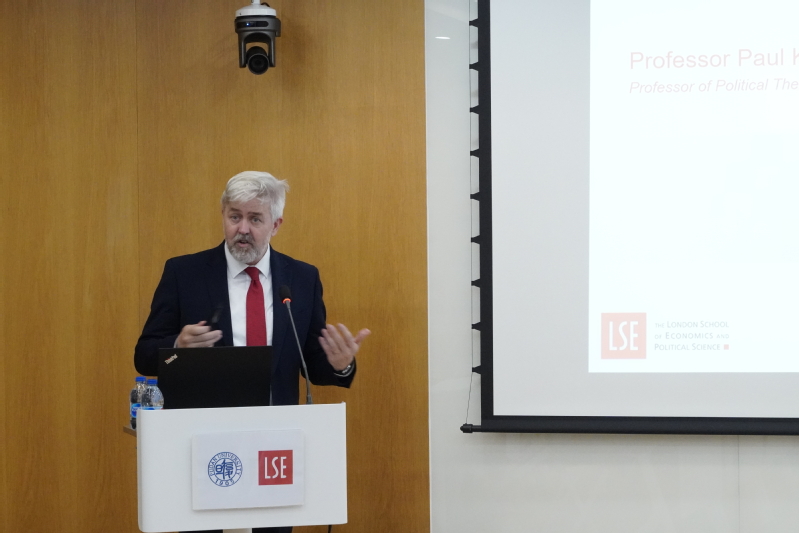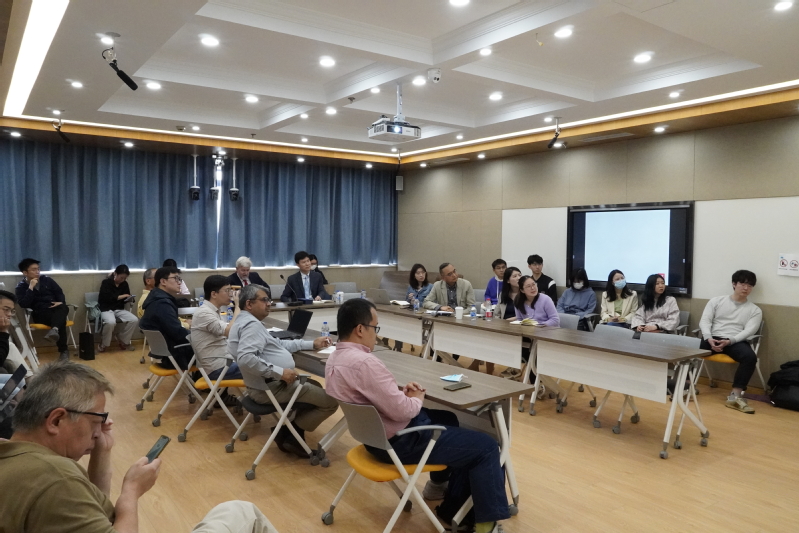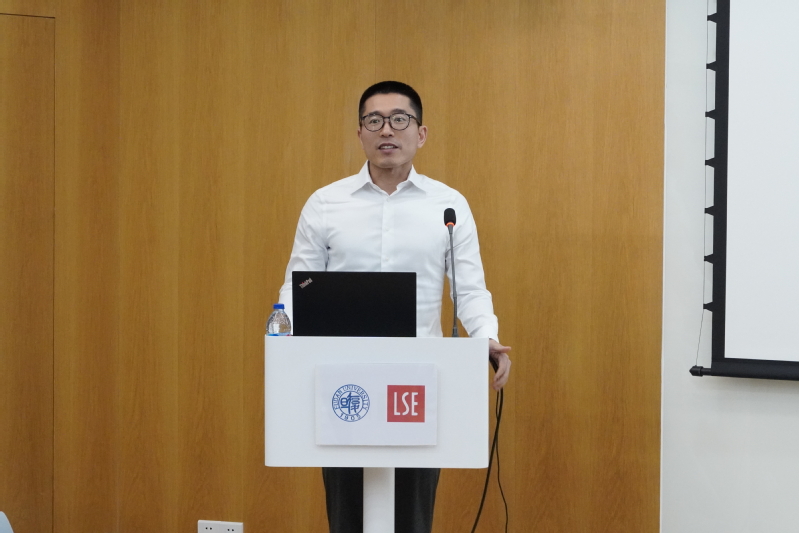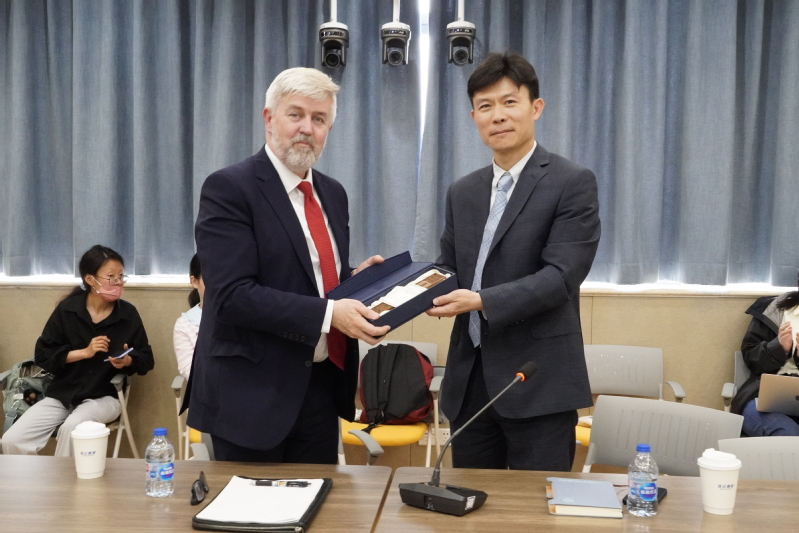Events



On May 22nd, 2023, the 43rd lecture of the Fudan-LSE Lecture Series was held in the conference room on the 8th floor of the West Sub-Building of Guanghua Towers. Professor Paul Kelly from the London School of Economics and Political Science (LSE) gave a lecture on “Liberal political theory after populism – the challenge to the liberal order”. The lecture was hosted by Professor Yijia Jing, Dean of the Institute for Global Public Policy, Fudan University. Professor Xi Lin from Institute for Advanced Study in Social Sciences, Fudan University served as the discussant.
At the beginning of the lecture, Professor Jing gave a brief introduction of Professor Kelly. Professor Kelly is Professor of Political Theory in the Department of Government at LSE. He has published on a broad range of topics in political philosophy and the history of political thought. His most recent book is Conflict, War and Revolution published in 2022, and he is currently writing a book titled Against Post-Liberalism. Prof. Kelly is the head of the Department of Government and was once a Pro-Director (Vice President) of Teaching and Learning of LSE.
Professor Kelly began the lecture by introducing an emerging political movement currently popular in Europe and the United States that challenges the hegemonic status of liberal political theory. It originated from the 2008 financial crisis and the increasingly active populist ideology as well as political movements.

Next, Professor Kelly discussed three trends of political theories that challenge the liberal political theory. The first one is “National Populism”. This perspective is known for its anti-elite arguments. It reflects on and refutes the liberal order and the politics of elites in power not only from the political and economic aspects but also from the cultural aspect. The second one is “Common Good Communitarianism”. This political theory opposes the libertarianism of free will and the primitive methodological individualism, emphasizing the importance of primary communities in politics. The third one is “Common Good Absolutism”. This thought explores moral and political pluralism at the epistemological level, arguing that epistemic authority dissolves almost all types of authority, especially political authority. As one of the scholars representing this theory, Adrian Vermeule confronts the social threat of modern liberalism and individualism through his analysis of the US Constitution and argues for a “common good constitutionalism” to bring back the spiritual common good into our political and legal discourse. Finally, Professor Kelly pointed out that liberalism also responds to each of these three political theories.

After Professor Kelly's presentation, Professor Xi Lin gave his comments. Prof. Lin first highly praised Prof. Kelly's research, and he gave some comments on the role that associations such as communities play in politics by drawing insights from his research.

After the commentary session, Professor Kelly discussed with the audience on topics of political authority, the power of order, and the evolution of liberalism from a political philosophy perspective. In the end, Professor Jing presented a gift to Professor Kelly. The lecture ended with a round of applause from the audience.
